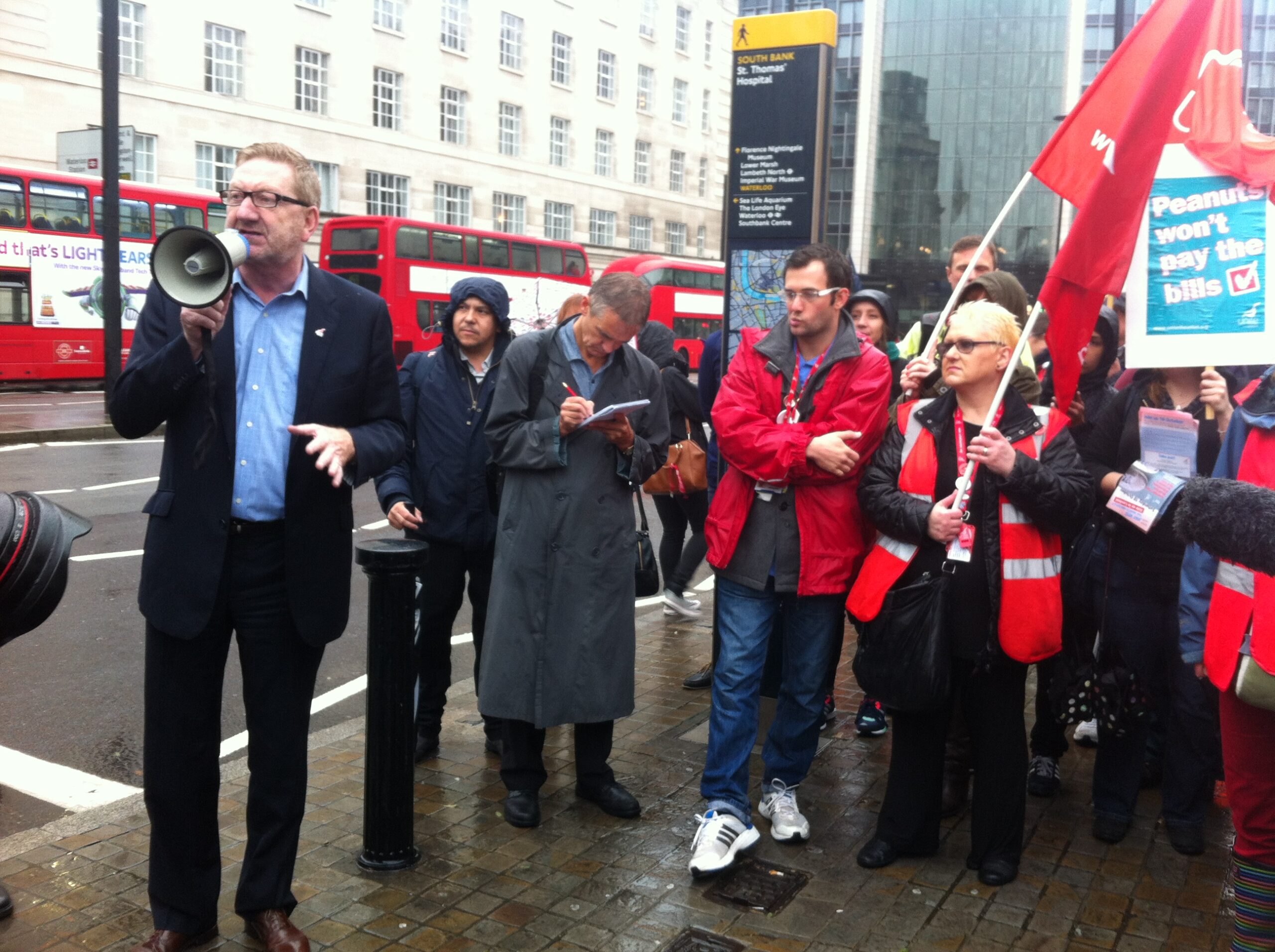Unite rules conference
Biggest union clings to Labour, but considers law-busting strikes
Kevin Parslow, Secretary, Unite Waltham Forest LE/1228 (personal capacity)
A battle over Britain’s biggest trade union’s support for Labour took place at its conference on 6 to 10 July. The leadership of general union Unite won a stay of execution for the Labour link, but lost on other proposals. Conference also approved the union’s right to take action outside the law, and political autonomy for Scottish members.
Unite’s four-yearly ‘rules conference’ makes changes to the rule book which lays the foundation for all other union policies. It also holds biennial ‘policy conferences’ to discuss smaller changes within the rules.
The executive council – Unite’s ruling body – proposed deferring any change to political strategy until Labour’s leadership is chosen. General Secretary Len McCluskey had to promise the rules conference would be recalled “if circumstances change”. Despite this, 10% of delegates opposed the statement.
Jeremy Corbyn
The air of hope and desperation for Jeremy Corbyn to do well in Labour’s leadership contest was palpable. But what will be done if he loses? Will Unite and other Labour-affiliated unions continue to back a party which, even in opposition, does not oppose Tory policies?
Following the conference, Labour approved the anti-working class parts of George Osborne’s budget. The executive’s statement was swiftly rendered out of date. But it was always designed to get through conference and no further.
More positively, conference removed the words “so far as may be lawful” from the rule book. Unite should use the decision to allow unlawful action to coordinate with other unions to fight proposed new anti-strike laws. The government plans undemocratic restrictions on union voting to prevent stoppages.
Conference gave Unite in Scotland the power to make independent decisions about political strategy. Members in Ireland already have this right – and back pro-union candidates instead of Labour. The Scottish regional secretary and chair, however, were at pains to say this would not mean disaffiliating from Labour. This is despite its recent electoral drubbing in Scotland.
Leadership defeats
The leadership did not have things all its own way. On the first morning, its standing orders – rules for how conference would operate – were defeated. Delegates were suspicious the executive would push through votes on blanket statements to prevent votes on changes it opposed. Conference was suspended for an hour while this rule was rewritten!
The executive was also defeated over changes to general secretary elections. It wanted to raise the minimum number of branches which need to nominate a candidate from 50 to 100.
Unite members in the Socialist Party and Socialist Party Scotland proposed or supported rule changes to further democratise the union. These included annual policy conferences, electing some full-time union staff, and reducing members’ terms of office on elected committees from three to two years. Unfortunately, these were defeated.
Socialist ideas
However, interest in our ideas led to us selling 83 copies of the Socialist, plus several of our Scottish sister paper. This is double the number sold at last year’s policy conference.
A successful fringe meeting was addressed by Socialist Party general secretary Peter Taaffe and Suzanne Muna, newly elected to the union’s executive. The meeting helped raise over £700 for our funds. A Trade Unionist and Socialist Coalition meeting was attended by several strikers from south London’s Bromley council visiting for the day.
The outcome of the conference may be disappointing for those looking to the biggest union to give a political lead. But the question of a new mass workers’ party will not go away. Our members in Unite, from the union’s executive to the rank and file, will continue to fight for it.









